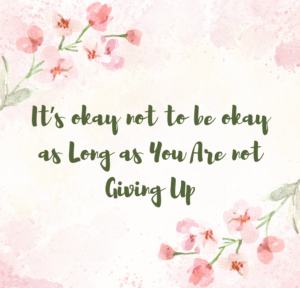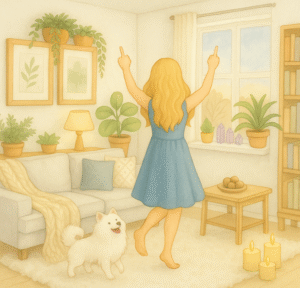Wounds That Time Won’t Heal
What is Child Trauma?
“Child trauma” refers to a scary, dangerous, violent, or life-threatening event that happens to a child (0–18 years of age). This type of event may also happen to someone the child knows, and they may be impacted as a result of seeing or hearing about that person being hurt or injured. When these types of experiences happen, a child may become very overwhelmed, upset, and/or feel helpless. These experiences can happen to anyone, at any time, and any age; however, not all events have a traumatic impact.
Note: Not all overwhelming or life-threatening experiences are considered traumatic. Children interpret their unique experiences differently. A life experience that is traumatic for one child might not be traumatic for another.
Childhood trauma can contribute to many mental and emotional struggles that don’t always surface until much later in life. In many areas of life, adolescents who have experienced trauma since infancy will face challenges. You may not always know that these negative memories are contributing to your struggles, but they often are, even if you can’t fully recall them.
Although people often say things like, “She was so young when that happened; she won’t even remember it as an adult,” childhood trauma can leave a lifelong impact. I can tell you that because I’ve always remembered it. It was always there, haunting my nightmares.
Repressed Memory Theory
You might’ve heard that people cope with painful memories by forgetting the event, which is called memory repression.
Sigmund Freud was the first to connect childhood trauma with memory loss, or repressed memories.
The idea of memory repression dates back to Freud in the late 1800s. He developed the theory after his teacher, Dr. Joseph Breuer, told him about a patient, Anna O.
She experienced many unexplained symptoms. During treatment, she began to recall upsetting past events she had no conscious memory of. As she remembered and talked about them, her symptoms began to improve.
Freud believed memory repression was a defense mechanism against trauma. You might not consciously remember what happened — but your body remembers. And it shows up in symptoms.
Childhood Trauma: A Little Bit of My Story
I didn’t want to share most of my life stories because I felt ashamed. But I also want to help others who went through the same, or help prevent it from happening again.
I was about 3 years old when it happened. My mother was pregnant with my brother, still early in her pregnancy. That day, her youngest brother was visiting. She asked him to look after me while she went to the backyard to do the laundry. My father wasn’t home; he was at work.
While she was outside, my uncle put his vile hands on me. He didn’t penetrate me, but he did things I won’t describe here. It was disgusting. I remember the color of the shorts he wore, red with white stripes on the side.
I remember him saying, as he touched me: “If you tell anyone, you’ll be in trouble.”
I don’t remember how long my mother was gone, but when she walked back into the room, she dropped the clothes on the floor. After that, I blacked out. My brain protected me.
As I grew older, I couldn’t remember his face, only what happened that day. The nightmares were constant. I went to therapy, and my therapist encouraged me to talk to my mother. But I couldn’t. My mother and I never had a close relationship. Talking to her usually ended in blame and gaslighting. And she was part of the physical and mental abuse I suffered, but I’ll share more about that later in this post.
In 2016, I went back to my home country to visit. On the last day before flying home, I told her about my nightmares. I told her what I remembered.
She was shocked. “I thought you were too young to remember,” she said.
“Did it really happen?” I asked her.
She said she didn’t know all the details, but she remembered walking in and seeing him pulling his hands away from me. I asked her why she never did anything. Why didn’t she tell my father, who died in 2004, never knowing about it? Why didn’t she protect me?
She said he was young too, maybe 15 years old. But that doesn’t excuse it. At that age, you know what’s right and wrong.
She told me it happened to her too, and it was even worse. That I should forget about it because it was a long time ago.
I told her this wasn’t a competition about who had it worse. Pain is pain. Trauma is trauma. We should be protecting and supporting each other, not minimizing it. Especially her being my mother, she should have done something, that’s what any mother in her right might would do.
She gave more excuses. “I got married too young,” “He’s my brother,” “He probably doesn’t even remember.”
But when I finally remembered who it was, it all came back like a movie in my mind. I cried for hours. He had been to our house so many times after that. His life now is a mess: drugs, jail, and more crimes. I won’t write more about him here. I hate him. I despise him.
After I told her, she blamed me for sharing the story in front of my brother and other people.
My mother was 21 when she had me. My birth wasn’t easy. I had the umbilical cord around my neck and was resuscitated after delivery. My dad was overjoyed to meet me; he always said he was proud to be my father.
I think my mother had postpartum depression. I don’t want to say what happened, but I almost died as a baby.
Throughout my childhood, she never hugged me. Never kissed me goodnight. Never said “I love you.” She said she wished I were dead. Many times.
She used to tie me to a heavy marble table in the living room and leave me there with raw rice and beans to separate. When I finished, she would mix them back up, so I’d have to do it again. She untied me only when my dad was about to come home. She proudly said this to everyone at any opportunity she had.
She beat me, humiliated me in front of others, and warned me not to tell my dad, or I’d pay the next day. So I kept it all in.
I had trouble making friends. I was bullied at school. I fought back; I was aggressive with bullies. My dad got called to school many times. I regret that. I wish I had handled things differently.
The Long-Term Impact of Childhood Trauma
Childhood trauma has long-lasting consequences, not only for the person but for society. Research shows that trauma in early life increases the risk of both mental and physical health issues in adulthood. And it even gets passed on; intergenerational trauma is real.
She apologized years later, when I was 19. I finally had the courage to tell her how deeply she had hurt me, and that if I ever became a mother, I would never treat my child the way she treated me.
I’m kind. I always try to understand people and see the good in them. My mother is all I have, and I chose to forgive her. But I also have boundaries that cannot be crossed. If she starts her old behavior when we’re on the phone, I calmly say it’s triggering me and hang up.
I live with PTSD. I live with Bipolar Disorder, ADHD, and Fibromyalgia.
When you’ve been traumatized as a child, it settles deep in your bones.
You can try to move on, but there’s a child in you who still remembers. If you haven’t had the right help, that part of you still carries the weight of everything.
Maybe you don’t notice it every day. But when life gets stressful, when you’re reminded of the past, it all comes flooding back.
Your trauma lives in your symptoms. Depression. Panic attacks. Eating disorders. Obsessive fears. Trust issues. Outbursts. Social anxiety. All of it. Even if you can’t consciously recall the events, your body and emotions remember. Your relationships, remember. Your self-esteem remembers.
I spent most of my life silent. Alone. Carrying all of this inside. But through this blog, I hope to help someone, anyone, who’s going through something similar.
You are not alone.
Don’t give up. Please.
You are worth fighting for. ❤️
People love to say, “Get over it,” or “Others have it worse.”
We are all fighting something. We are warriors. And our battles don’t need to be compared.
To all parents out there: Please pay attention. Watch your children. Protect them. Love them. If you notice something’s off, ask questions. Don’t dismiss it. It’s your job to be their shield.








